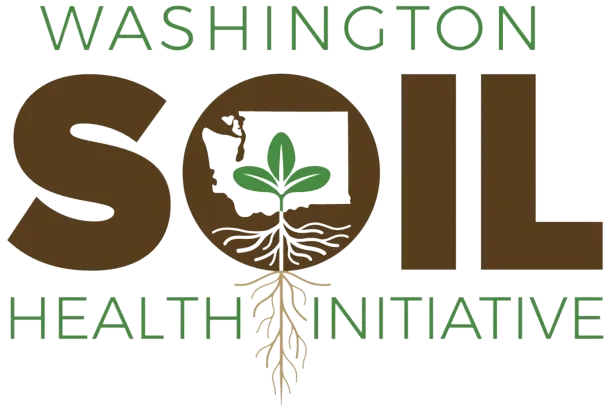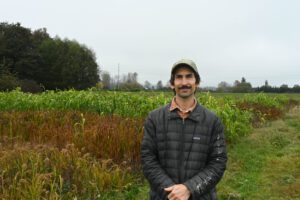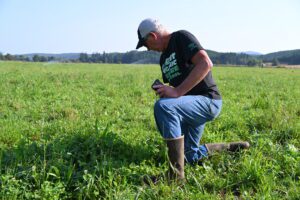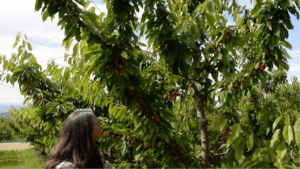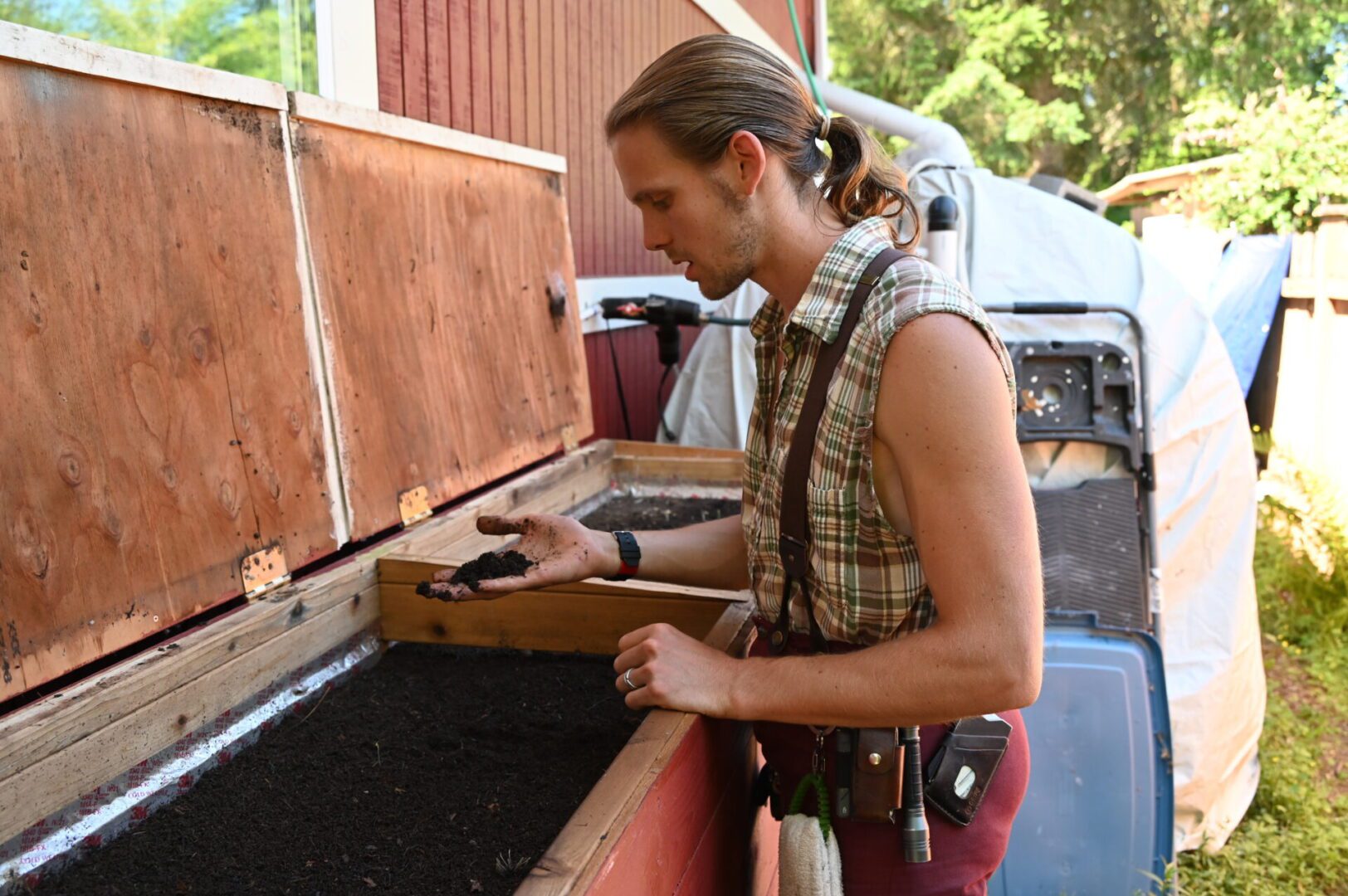
© Leslie Michel, WSDA
Soil Health Ambassador: Brier Patch Farm—Making Compost
Tyler of Brier Patch Farm finds composting a powerful tool for building soil health and has enjoyed the fun adventure of making his own.
September 3, 2024
Author: Leslie Michel
Tucked away in the suburbs of Brier, WA Tyler manages Brier Patch Farm. Tyler uses a market gardening format, where he manages large gardens in neighboring back yards. Residents that work with him are able to use the produce from their own gardens, and the remainder is sold through local CSA or to local restaurants.
Tyler started market gardening in 2019 after renovating their back yard to accommodate the large produce plot. Tyler specializes in microgreens such as sunflower shoots, pea shoots, micro broccoli, and micro radish, as well as other seasonally available produce.
What made you interested in making compost?
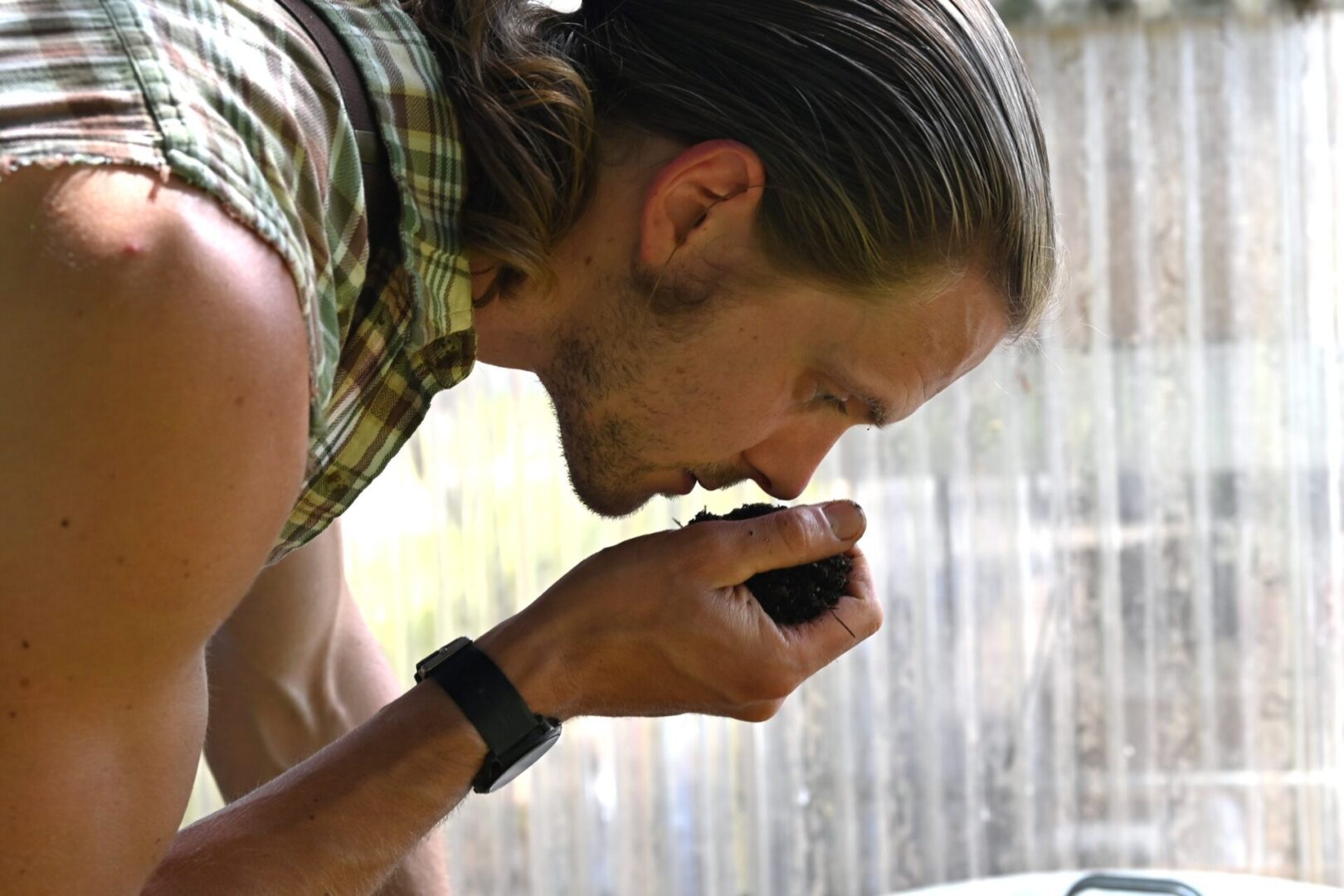
GETTING YOUR HANDS DIRTY | Tyler utilizes worms to create a compost product that he can use in his plots.
© Leslie Michel, WSDA
I love building compost piles. There's something about the alchemy of turning the repulsive stuff that people don't know what to do with into like this the substrate of life.
A very little amount [of compost] can heal so much and reverse so many problems [in the soil]. I've heard it said that the problems we have are increasingly complex, but the solutions are embarrassingly simple.
Soil biology and soil health was where it started for me back in high school because I knew everything in life is dependent on soil. I wanted to eat healthy food but [that] was dependent on healthy soil.
What have been some of the benefits and challenges you’ve experienced from using compost?
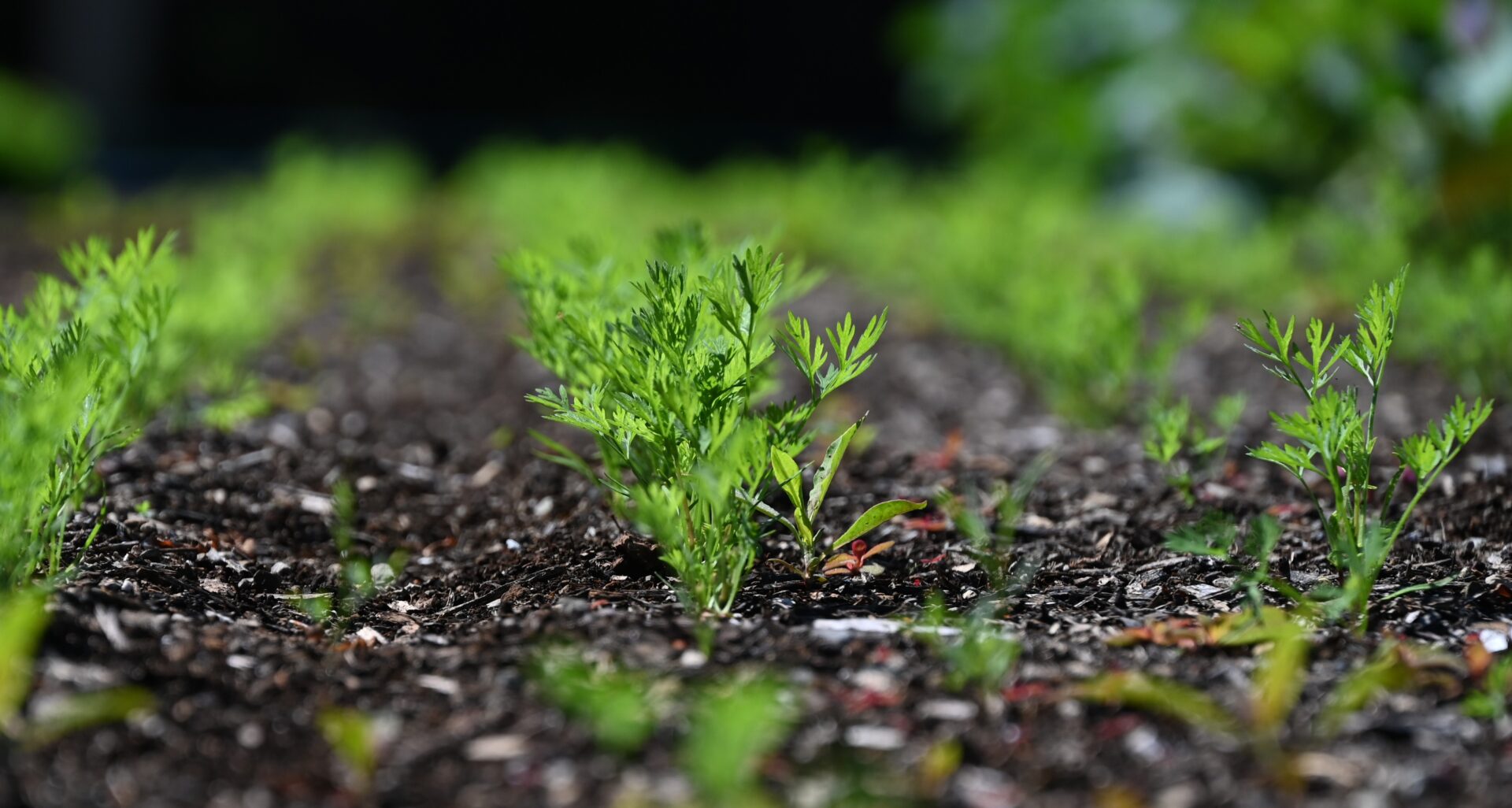
COMPOST AS A SOIL AMENDMENT| A nutrient-dense soil amendment like compost can supplement a crop's nutrient needs to grow strong and healthy.
© Leslie Michel, WSDA
There are obviously many [benefits]. The fastest benefit I’ve seen is in my microgreens production. Microgreen yields were sometimes doubling in relation to using an expensive pre-bagged mix.
Whenever I added compost, everything was better. I figured that was going to translate to the rest of the field. I'm not yet able to make a tremendous amount of compost on my own, but I'll figure out how to scale that up some day.
Some of the challenges with [compost] is that sometimes finding materials can be tricky. Everything should be two inches or smaller for mixing the materials well enough at the beginning. It's easy to have hot spots and cold spots if you're not mixing it right.
I've invested in a chip or shredder now so that I can process material. I was originally running over stuff with a push lawnmower, which was a real drag for many reasons. A chipper shredder is a total game changer for having materials to use.
What would you tell other farmers interested in making their own compost?
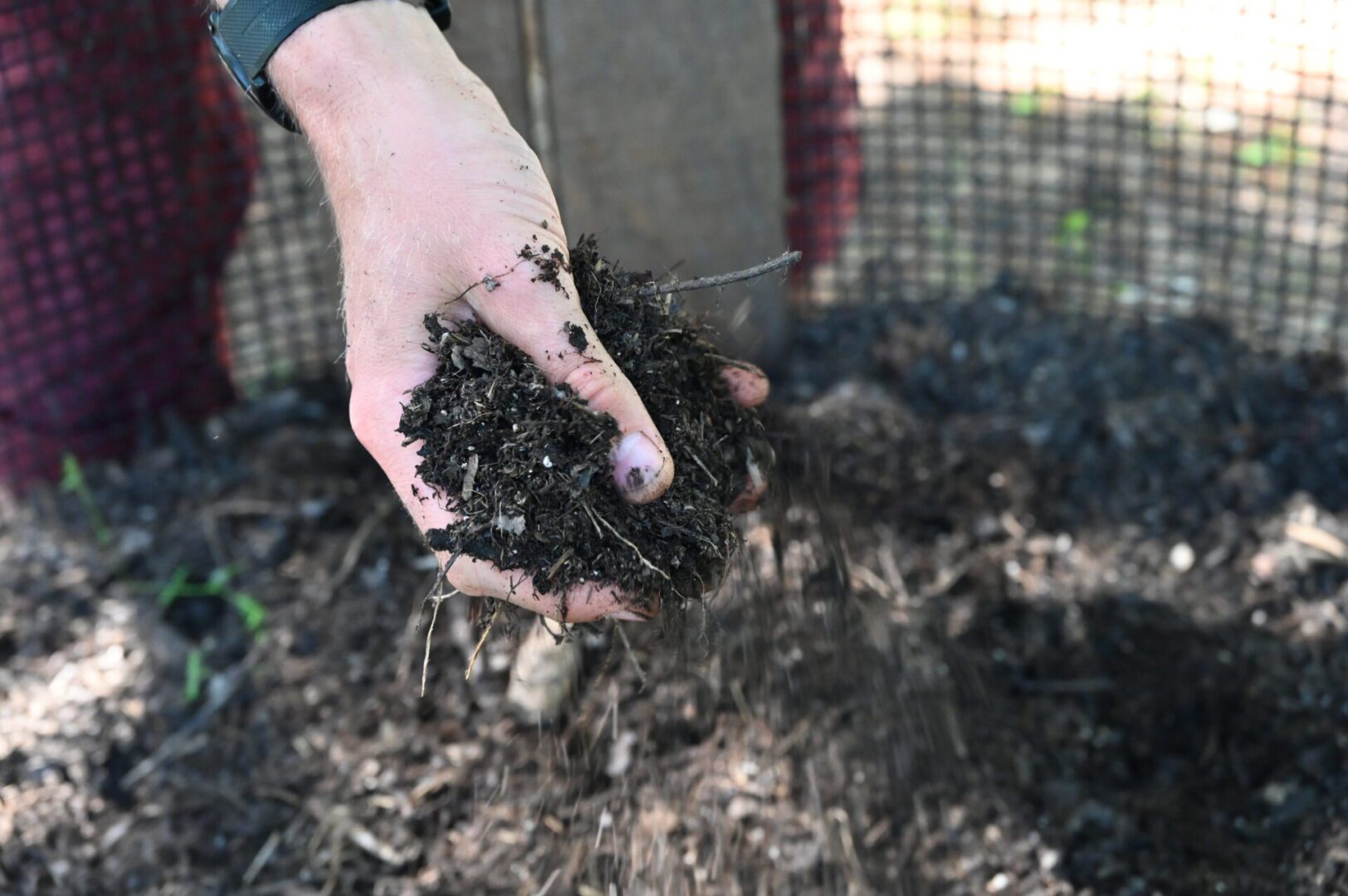
TRIAL AND ERROR | Tyler has tried a few methods for creating his own compost. His words of advice. Be patient with yourself.
© Leslie Michel, WSDA
Have patience. I had to do several piles before I got it down, like holding the temperature for the correct amount of time, getting the moisture levels correct, and thinking through all the techniques of how to turn it correctly.
You have to experiment, [so] put your experimentation cap on and don’t expect it to work for maybe three or four piles. You have to see how your ingredients react with each other before you can assume that what you have is the right nitrogen-carbon ratio. Pile four or five is when I got it down, so be patient with yourself.
For the best resources on the controlled composting method and soil biology in general, the courses offered by the Soil Food Web School are what I ferociously recommend. There are a million other good books, but I think it's better for people to just read a limited amount and then jump into it. Someone can get bogged down in theory too much. One experience can be worth more than a hundred good books/theories.
Any final thoughts on soil health?
Soil health to me is so important because everything on this planet, even the sea, is affected by and affects the soil. Everything that respirates and breathes interacts with the soil in one way or another through dying and being reborn through the food we eat. It's ubiquitous. Soil is the substrate of all life.
Soil has the capacity to reverse so many of the problems that we've created if we allow it—if we get out of the way and pay attention to what it's doing. We can hasten [the soil] a little, help it along in its natural processes, but I must stop getting in the way.
The chemistry of soil is affected by biology to how nutrients are made available to plants. We can clean up this world if we start paying attention to things in a non-controlling manner. We tend to think that complex problems need complex solutions; but it's very simple – we don't need to understand it all for it to work, which is also humbling and exciting.
To find out more about Brier Patch Farm, check out their website: BrierFeedsBrier.com
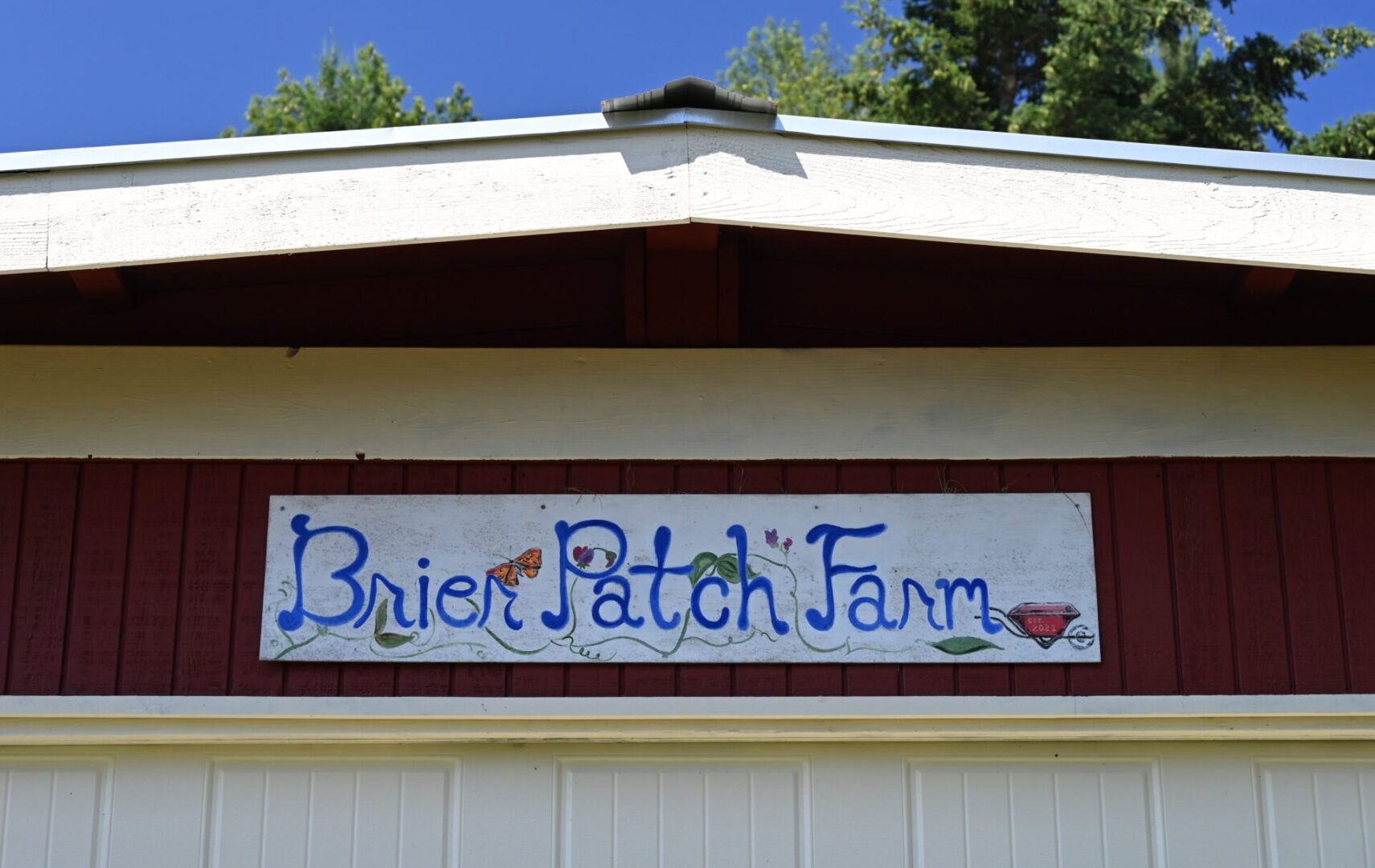
BUILDING EXPERTISE | With inspiration from a strong network of others passionate about sustainable agriculture, Brier Patch Farm will continue to try practices to build soil health.
© Leslie Michel, WSDA
Additional compost resources:
Termorshuizen, A. J., Moolenaar, S. W., Veeken, A. H. M., & Blok, W. J. (2004). The value of compost. Reviews in Environmental Science and Bio/Technology, 3, 343-347.
Bernal, M. P., Alburquerque, J. A., & Moral, R. (2009). Composting of animal manures and chemical criteria for compost maturity assessment. A review. Bioresource technology, 100(22), 5444-5453.
Sullivan, D. M., & Miller, R. O. (2001). Compost quality attributes, measurements and variability.
Want to connect with Tyler?
Fill out the form below
Learn more from WaSHI Soil Health Ambassadors
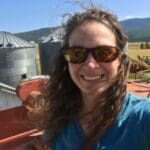
Leslie Michel
Leslie works with counties on the Voluntary Stewardship Program through the Washington State Department of Agricutlure, providing technical support on their monitoring plans. She also assists with the Washington Soil Health Initiative and Sustainable Farms and Fields program by providing support for soil sampling.
This article was published by the Washington Soil Health Initiative. For more information, visit wasoilhealth.org. To have these posts delivered straight to your inbox, subscribe to the WaSHI newsletter. To find a soil science technical service provider, visit the Washington State University Extension website or the Washington State Conservation District website.

